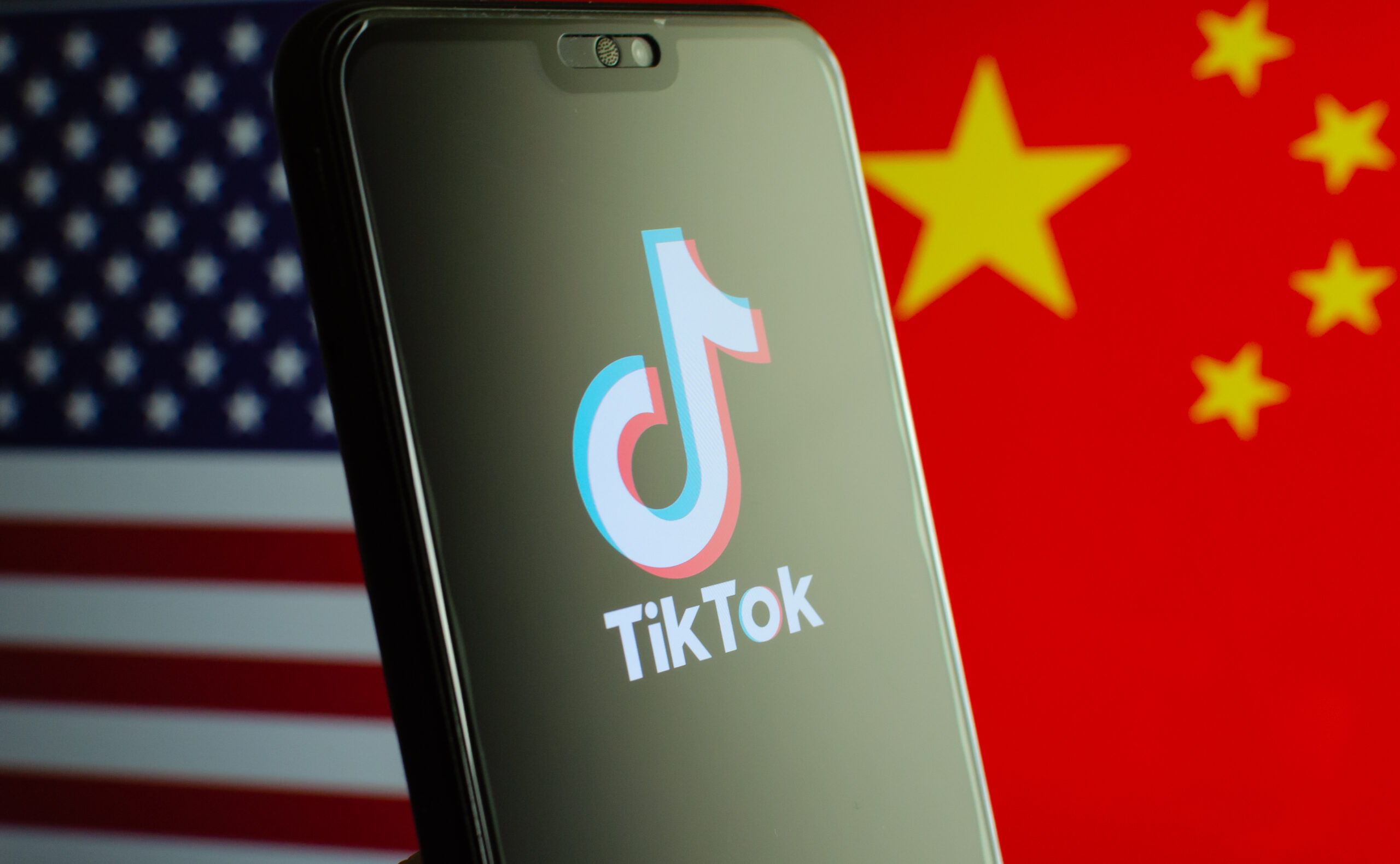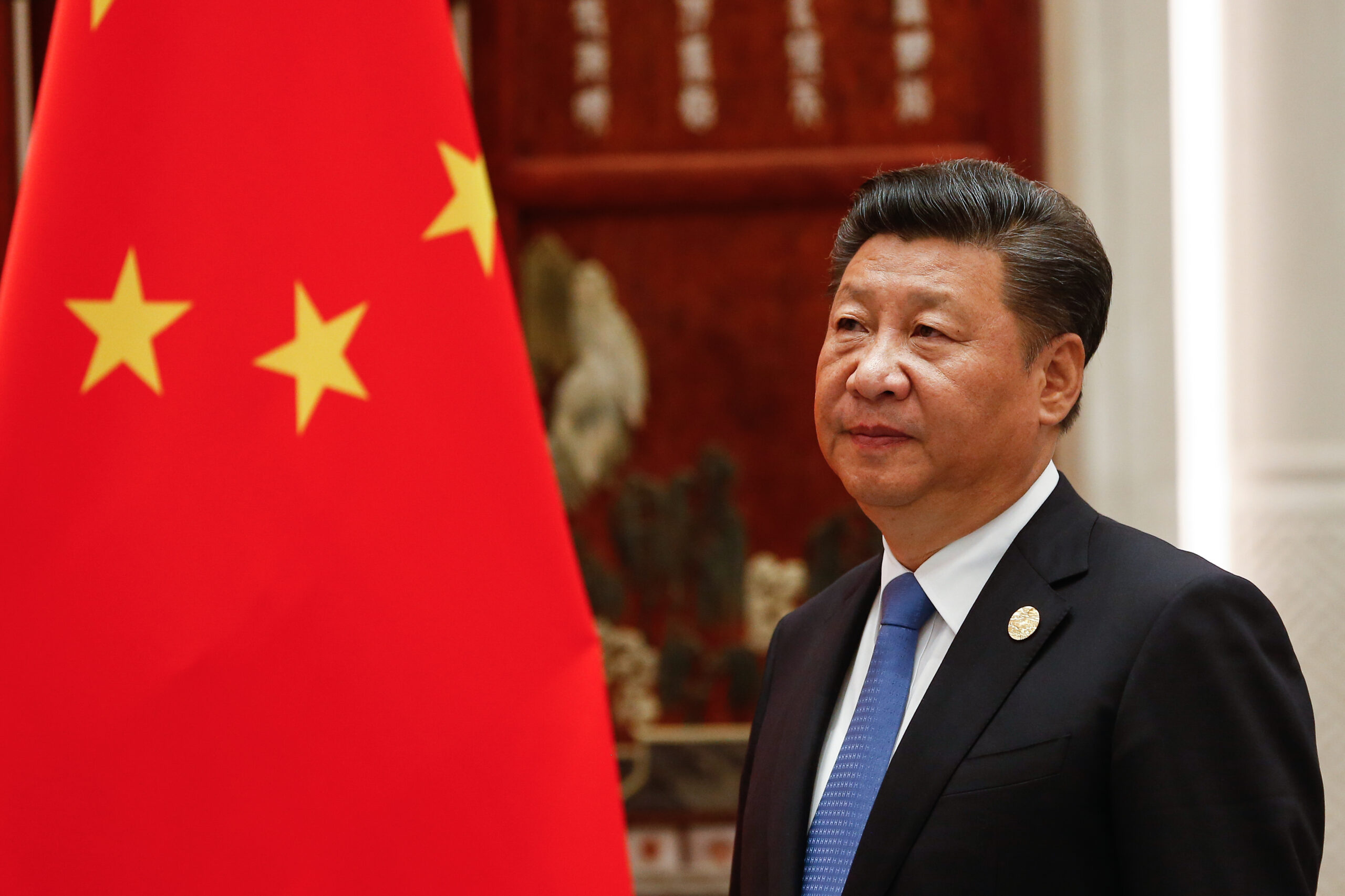How China affects you
From Hollywood to the NBA, China’s influence over U.S. businesses and citizens is growing – far more than most Americans realize. Here’s how to protect ourselves.
 Basketball fans in Hong Kong show support for Houston Rockets general manager Daryl Morey on October 15, 2019. (Lampson Yip - Clicks Images/Getty Images)
Basketball fans in Hong Kong show support for Houston Rockets general manager Daryl Morey on October 15, 2019. (Lampson Yip - Clicks Images/Getty Images)
In October 2019, in the midst of massive pro-democracy protests in Hong Kong, Daryl Morey – at the time, the general manager of the Houston Rockets basketball team – shared an image on Twitter containing seven words that inadvertently triggered a firestorm.
While most Americans would have found Morey’s tweet – “Fight for Freedom. Stand with Hong Kong” – inoffensive, Beijing was furious. After the Chinese consulate in Houston and the Chinese Basketball Association urged the Rockets to “correct the error,” Morey deleted his tweet and apologized, as did the National Basketball Association. But state-owned Chinese broadcasters were not mollified and retaliated by refusing to televise several preseason NBA games being held in China. The episode, which cost the NBA hundreds of millions of dollars in lost revenue, became a dramatic example of the way an authoritarian government thousands of miles from U.S. shores has begun shaping the experiences and behavior of Americans and their institutions.
Within the United States, the debate about China these days tends to focus on big-picture issues such as national security and trade. These challenges are very real. But they shouldn’t obscure the ways China’s authoritarian leadership also threatens American society, freedoms, and values – and in ways most U.S. don’t citizens realize.
In 2012, when Xi Jinping became the leader of the Chinese Communist Party (CCP), his country was enjoying deepening integration into the international community and sustained economic growth following the 2008-09 global recession. There was a widespread consensus within China’s political elite that the country’s rise to superpower status was overdue. These converging dynamics encouraged President Xi and the rest of the Chinese government to begin experimenting abroad with techniques they had developed for maintaining control at home.
China’s authoritarian leadership threatens American society, freedoms, and values – and in ways most U.S. citizens don’t realize.
More than a decade later, Beijing now deploys an extensive array of tools and tactics for extending its influence, in a top-down fashion, to virtually every platform and country in the world – the United States very much included. As the world has become more interconnected, the barriers that have traditionally separated countries and people have come to matter less. In many ways, this has been a positive development. The Chinese government, however, has learned to exploit this interconnectedness to undermine the liberty of individual Americans. Unless the United States finds effective ways to respond on both the individual and institutional level, Beijing’s efforts will only intensify.
Bad influence
As a highly repressive regime, the Chinese government knows it can’t win many foreign hearts and minds through the attractiveness of its culture or ideas – what’s known as soft power. So China’s leadership has developed a strategy of “sharp power” instead, which aims to influence the ideas of open societies through a mix of tailored messages, the manipulation of domestic debate, and censorship. Beijing’s activities in this area aren’t limited to politics; they extend into many other socioeconomic and cultural arenas. And the list of those being affected by China’s influence campaign is extensive, encompassing individual Americans; massive corporations in sports, entertainment, tech, and other areas; students and academics; and refugee and diaspora communities.
Probably the most familiar example of how Beijing’s sharp power affects Americans is China’s success in restricting free expression around the world. As the NBA example suggests, U.S. entertainment industries, particularly sports leagues and Hollywood, are especially susceptible. The reason, of course, is that these industries are eager to maintain access to China’s enormous and highly lucrative market. That eagerness gives Beijing enormous leverage, which it uses to shape the speech and behavior of filmmakers, actors, team owners, league officials, star players, and fans.
 One of several posters by Badiucao, a Chinese artist and dissident, raising awareness of China's human rights issues during Beijing Olympics. (Photo courtesy of Twitter / Badiucao)
One of several posters by Badiucao, a Chinese artist and dissident, raising awareness of China's human rights issues during Beijing Olympics. (Photo courtesy of Twitter / Badiucao)
Recall that during the Houston Rockets episode, even a superstar as big as LeBron James quickly fell in line. Following Morey’s tweet, James suggested that the executive was “misinformed or not really educated” about Hong Kong. It’s probably no coincidence that at the time of his statement, James’ basketball jersey was the top seller in China under a lucrative endorsement deal with Nike, or that his film production company, SpringHill, was wrapping up Space Jam 2, which it hoped to distribute in the country.
Beijing’s impact wasn’t limited to China, moreover. A few days after Morey’s tweet, when a number of people attending an exhibition game in Washington, D.C. between the Wizards and the Guangzhou Loong Lions tried to brandish signs reading “Google Uyghurs” – an attempt to encourage other fans to educate themselves about China’s genocide against its Turkic Muslim minority – staff at Washington’s Capital One Arena confiscated the posters. The stadium defended its move by citing a policy that bans the display of all political messages, but it’s hard to believe it would have taken action had the Morey incident not just occurred.
U.S. entertainment industries, particularly sports leagues and Hollywood, are especially susceptible to pressure from China.
A similar pattern of economic coercion has shaped the content of many American movies. In 2020, PEN America released a report detailing the extent of China’s influence. It showed that during the filming of Marvel’s Iron Man 3, some of which took place in China, government censors were invited to the production set and given creative input into the movie. (The studio’s deference to Beijing was duly rewarded with benefits that included preferential release dates in China.) Joint productions between American and state-run Chinese studios, meanwhile, are subjected to even stricter control. These days, it’s become hard to find American movies that even touch on sensitive topics such as the Uyghurs, Hong Kong, Tibet, or Taiwan. The 2012 remake of Red Dawn originally cast China as the film’s antagonist – but the filmmakers swapped in North Korea during postproduction after critical reports appeared in the Chinese media. Doctor Strange, Marvel’s blockbuster, reimagined the Ancient One, a central character the original comics described as Tibetan, as Celtic instead. And more recently, Top Gun: Maverick faced major blowback when the studio removed Taiwanese and Japanese flags from costumes for a movie trailer. (They ultimately appeared in the actual movie.)
Actors have also been caught in the crosshairs. Richard Gere – who, in addition to working as a leading man, is an outspoken advocate for Tibet and a friend of the Dalai Lama – has largely disappeared from studio movies in recent years. When asked in an interview why he’s turned to independent films, Gere described “an episode where someone said they could not finance a film with [him] because it would upset the Chinese.” And after the wrestler-turned-actor John Cena referred to Taiwan as a “country” in a 2021 interview promoting the ninth Fast and Furious movie, Cena quickly issued a public apology on Chinese social media, saying, “I love and respect China” and “I’m very, very sorry for my mistake.”
American universities, eager to cultivate international ties and funding, have become another battleground for China’s assault on free speech. A January report from Radio Free Asia revealed that tens of thousands of Chinese students studying abroad on government-funded scholarships are forced to sign loyalty pledges to the CCP. The students are also required to provide two guarantors – often family members – inside China who will be forced to repay the scholarships if the students break their pledges.
Beijing also uses Confucius Institutes and Chinese Students and Scholars Associations (CSSAs), some of which get funding from the Chinese government, to promote its interests on U.S. campuses. According to a 2018 U.S. government report, these groups promote Chinese culture and support Chinese students studying abroad. But they also monitor the language and behavior of those students. During the 2022 Beijing Olympics, for example, the CSSA at George Washington University launched a campaign targeting a series of posters designed by a Chinese artist and dissident criticizing the Chinese government’s policies on COVID-19, Hong Kong, Tibet, and the Uyghurs. After CSSA members complained to university administrators that the posters were racist, the institution removed them (although the university president subsequently admitted he had erred in doing so).

Technical difficulties
While its campaigns targeting Hollywood and U.S. universities have used fairly traditional means, Beijing is also positioning itself to influence American opinion through data-gathering tools and algorithms baked into popular technologies. Last year, for example, the Biden Administration banned new sales of telecommunications equipment made by Huawei and ZTE over concerns that China could use them to spy on Americans. And then, of course, there’s TikTok, which is currently the subject of a hot debate in the media and on Capitol Hill over whether it should be banned; critics fear that, left unchecked, the Chinese government could compel TikTok’s Chinese parent company, ByteDance, to turn over personal data on its more than 150 million American users.
In response to such fears, TikTok’s leaders have rolled out “Project Texas,” under which it would store all American user data in the United States. At least one former TikTok employee, however, has said that the plan would still leave user data vulnerable. Other defenders of TikTok point to the fact that ByteDance is an independent company in which Beijing does not own a majority stake. But reporting by The Wall Street Journal and others has shown how the Chinese government uses “golden shares” of such corporations to gain “board seats, voting power and sway over business decisions” and “to keep companies … in line with party objectives.”
Not only could TikTok and other Chinese platforms give China access to the personal data of U.S. consumers, but Beijing might also use this data to manipulate Americans. For example, China could use such information to customize algorithms to effectively spread propaganda supporting a Chinese invasion of Taiwan. Indeed, the FBI and U.S. technology firms have already uncovered multiple Chinese disinformation campaigns during the 2022 U.S. legislative elections involving actors with suspected links to China who sought to promote intentionally false and misleading claims online.
Inside China, U.S. tech firms hoping to gain access to consumers there have demonstrated a disturbing willingness to alter their products to comply with Beijing’s sensitivities. In 2018, for example, Google came under fire when it was discovered that the firm had been secretly developing Project Dragonfly, a China-specific search engine that could blacklist censored terms and link a user’s search history to other personal identifying information. Apple has repeatedly removed programs including podcast platforms and religious texts from the Chinese version of its app store – not only at the formal request of Beijing’s Cyberspace Administration but also in anticipation of being asked to do so. And Microsoft, which is trying to position itself as a defender of free speech and an open internet, pulled LinkedIn from China in 2021 after journalists and scholars complained that their Chinese-language accounts had been censored.

China’s long arm
Of all China’s actions, arguably the greatest threat to American citizens and residents of the United States comes from Beijing’s attempts at transnational repression, which Freedom House (a global democracy watchdog) defines as efforts to target and silence overseas dissidents and diaspora populations. Specific tactics include “assassinations, unlawful deportations, detentions, renditions, physical and digital threats, and coercion by proxy.” According to Freedom House’s research, China is by far the leading and savviest user of such tactics, with at least 253 instances documented worldwide since 2014.
In his 2021 book, Making the World Safe for Dictatorship, the scholar Alexander Dukalskis cataloged at least 31 examples over the past 20 years of China threatening individuals or their families living in the United States. Rushan Abbas, an American Uyghur who has exposed Beijing’s genocidal policies against her people, is one victim. In 2018, China imprisoned her sister, Gulshan Abbas, and Rushan Abbas hasn’t seen or heard from her since.
Safeguard Defenders, a British human rights organization, has alleged that Beijing maintains more than 100 unauthorized and illegal police outposts in at least 53 countries, including the United States. In April, two people were arrested by U.S. authorities and accused of establishing one such outpost in a six-story building in Manhattan’s Chinatown. According to the indictment, the defendants were believed to be tracking down and harassing Chinese citizens, including a pro-democracy activist living in the United States.
Evidence suggests that China has even found ways to influence U.S. policymaking. A July 2022 report by the National Counterintelligence and Security Center, for example, warned that the Chinese government has managed to exploit relationships it has built with officials at the state and local level. An investigation by The Associated Press in March showed that several individuals and organizations allegedly connected to China’s Ministry of State Security and its United Front Work Department (an agency dedicated to promoting Chinese interests abroad) may have exploited certain lawmakers’ involvement with the Church of Latter-day Saints (the Mormon church), which is keen to expand into China, to convince them to delay passage of a bill to close Confucius Institutes and to refrain from criticizing restrictions on religion inside China. In 2019, conversations between China’s consul general in New York City and members of the New York state senate seem to have led 62 state senators to cosponsor a bill declaring Oct. 1, 2019 – the 70th anniversary of the CCP’s rule – “China Day” in New York State. Although the adopted bill was technically innocuous, it explicitly acknowledged support from three New York-based organizations described as being part of China’s United Front Work Department in the organizations’ own materials, as well as in Chinese-language media.
While it is difficult to measure how much direct effect such interactions have had, this type of activity is part of a much larger pattern that has been documented in many advanced democracies. In 2017, for example, an Australian senator who was seen as a rising star was compelled to resign after it was discovered that, having accepted money for legal fees and travel from a Chinese national with close ties to the CCP, the legislator had then publicly broken with his party’s position on the South China Sea and made comments favorable to Beijing’s claims in remarks at a briefing with Chinese state media. Researchers have also documented attempts by CCP-linked individuals and organizations to cultivate relationships with political actors in the Czech Republic, Germany, New Zealand, Slovakia, and Switzerland, with the intent to influence policy decisions.
Pushing back
All the efforts discussed above have made it increasingly difficult for Americans and citizens of other advanced democracies to know whose analysis can be trusted, what is really happening inside China, and how to have a rational, nuanced public debate about their governments’ relationships with Beijing. Although the openness of Western democracy has made it vulnerable to China’s influence, Americans must remember that their system, and the values that underpin it, are also their greatest strength. The U.S. response must therefore be guided by the principles of accountability, the rule of law, and respect for human rights.
Chinese-language speakers in the United States have already suffered from Beijing’s success in crowding out and forcing the closure of most independent Chinese-language media abroad. Since the CCP’s goal is to build widespread acceptance of its power and legitimacy among Chinese people worldwide, the United States must support the diversity of thought among those same people and protect their freedom of speech.
During the Trump Administration, Washington moved toward a whole-of-government approach that would more comprehensively examine and counter China’s effect on American society and institutions. Such efforts are lagging at the state, local, private sector, and individual levels, however. Part of the problem is that Beijing is making every effort to limit access by foreigners to China while simultaneously trying to control how China is perceived around the world. The U.S. government should invest in rigorous Chinese language and study programs in order to ensure that the information vacuum is not filled by Beijing or its allies.
American consumers should also do more to support businesses that protect free speech on China-related issues, and they should avoid giving their money to companies that capitulate to Chinese censorship or that sell products linked to Uyghur forced labor. To turn themselves into better informed consumers, they should engage with a variety of reporting, analysis, and perspectives from trusted news sources. Government leaders at various levels must explain these issues and concerns clearly. Nongovernmental organizations should help by tracking media reporting and making data publicly accessible about companies that have made concessions to Chinese censorship or use supply chains compromised by Uyghur forced labor. They should also cooperate with the U.S. government on public awareness campaigns.
We must work to envision a future where the people of the United States and China can cooperate under freer circumstances – and do what we can to bring that world into being.
The proliferation of government-linked Chinese technology firms, and Beijing’s influence over the development of tech platforms and standards around the world, also means that Americans must ask hard questions about how emerging technologies are being designed, which data sets and algorithms shape them, and how their consumer data is being collected and used. While TikTok is in a league of its own in terms of evading transparency and accountability, many U.S. technology companies also monetize and share user data without proactively seeking the users’ informed consent. Washington must therefore improve digital privacy protections for its citizens.
Even as it takes the steps outlined above, the United States should calibrate its response carefully. With anti-Asian hate crimes on the rise, Americans and the U.S. government must avoid adding fuel to the fire. That means being clear-eyed about the challenges China poses to the integrity of American democracy while also protecting the rights of all people. Since the United States is far from the only country currently affected by Beijing’s ambitions, it should strengthen ties with its democratic allies by increasing trade and people-to-people relationships.
Finally, Americans must not assume that China will forever be controlled by the single-party regime that rules it today. We must work to envision a future where the people of the United States and China can cooperate under freer circumstances – and do what we can to bring that world into being.
The Catalyst believes that ideas matter. We aim to stimulate debate on the most important issues of the day, featuring a range of arguments that are constructive, high-minded, and share our core values of freedom, opportunity, accountability, and compassion. To that end, we seek out ideas that may challenge us, and the authors’ views presented here are their own; The Catalyst does not endorse any particular policy, politician, or party.





